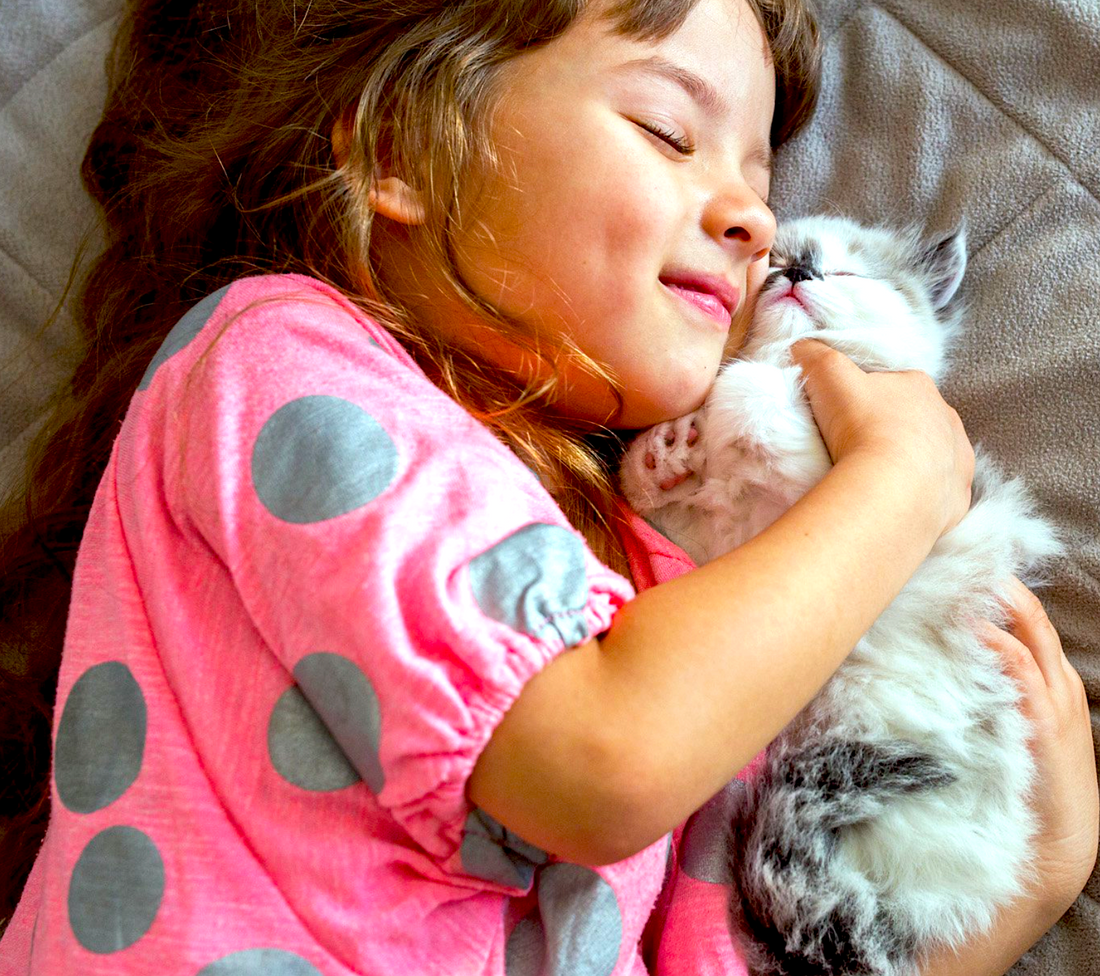Table of Contents
Age Converter
Years
Months
How Old Is My Cat In Human Years?
It can be hard to know how old your cat is in human years. Cats age differently than humans, so it's tricky to figure out what their "human" age would be. A kitten is one year old when they reach 12 months, and in human years their age would be 15 years.
Cats generally age much faster than their owners, so it can be tricky to calculate their age. Here we will discuss how to calculate cat age in human years.
How To Calculate Cat Age In Human Years?
What would the world be like if cats could talk? If we wanted to know how old our cat is in human years, they would tell us their age, but it is not possible. Unlike dogs who have more variation in size and breed, a cat's age can be calculated according to set standards.
There are some standards set by American Animal Hospital Association, and it was agreed upon by the American Association of Feline Practitioners and the Feline Advisory Bureau.
According to the method set by them, cat aging is:
- The first year of feline life is equal to 15 years of humans.
- The second year of cat life adds an additional 9 human years.
- The remaining year of their life each year will add 4 human years.
Learn more about our Cardboard Cat Homes >
Cat Aging: How do cats age?
There was a myth that one year of cat life is equal to seven years, but as you see, this ratio is very misleading. Cats experience the fastest aging process during their first two years of life, and a slow and steady rate follows this after that.
Cat aging depends on her health, activity level, and environment. Physical changes occur as cats mature. For instance, they have stronger teeth when they are young kittens than an older cat that may not be able to chew up tough meat or bones anymore because of tooth decay or gum disease.
The common belief that cats are old souls with many years of wisdom and experience behind them has been proven true. This is because one-year-old felines have the same physiology as an average 15-year-old human, which may explain why a kitty always seems intelligent at that age.
When it comes to the aging of pets, cats are different from dogs. There is less variation in different breeds as compared to dogs.
How do indoor and outdoor cats age?
Another factor that may play a role in how cats age is the amount of time they spend outside. According to AAHA, this topic is very controversial and needs more research but it appears that cats who live indoors are more likely to stay safe and healthy. With less exposure to the outdoors, cats living inside have a greater chance at longer lifespans without all of the risks of being outside.
Living indoors is better for your cat's health than outdoor life because they're not exposed to many diseases or dangers like traffic accidents. That means indoor cats can enjoy a happier, healthier life while playing and snuggling on their owners' lap - which we know makes them some very happy felines.
However, being inside too often can be bad for your cat's health. This is because, unlike their outdoor counterparts, who have more space and exposure, indoor kitties lack the necessary environment needed to maintain good immune systems that may otherwise come from essential factors such as physical activity or sunlight.
Cats deserve to live outdoors, but the dangers are real. In many cases, cats can be traumatized by their surroundings too much- they're relying on instinct alone and no longer have human contact as a source of comfort.
Outdoor cats also don't always get medical care when needed because accidents happen outside of doors. The chances are that there are no humans around in an emergency, even if it's just one door away from where your house is, and a cat needs help there.
Outdoor cats are more likely to be exposed to certain parasites and infections, affecting the cat aging process. Still, it's not clear if this difference has any effect on longevity or life expectancy.
And finally, outdoor cats are more vulnerable than indoor ones when it comes down to exposure in general. So it depends on the owner which lifestyle is best for their kitty, either indoor or outdoor because both have limitations and benefits.

Explore our Cardboard Cat Homes >
Signs of aging in senior cats
As your cat reaches the senior life stage, some physical indicators can help you get a sense of their age. The most common signs that will appear are"
Dental issues
It is well known that all animals' teeth age over time. Cats are no exception to this rule, and their tooth decay rate depends largely on how old they are. Cat aging affects teeth due to wear-and-tear and periodontal disease caused by bacteria in plaque buildup around their mouths. It can lead to inflammation, infection, and pain, and they cannot chew food properly.
Skin and coat problems
Like humans, cats can have a vast range in hair thickness, color, and length. The biggest difference between cats' life expectancy and ours is that they don't experience graying due to old age and some other health problems related to their metabolism slowing down over time.
As they get to their senior years, many cat owners notice that these felines start losing some hair. This is because as our feline friends' age, so do their follicles- which can lead to a decrease in fur production and excess skin on the body. One thing we can try for this problem is brushing them often with an appropriate brush or comb!
Eye tears and infections
A cat's eye may change in color and look cloudy as they age. This can be due to many reasons, including the humid environment cats are commonly kept in that will lead their eyes to tear more often or an infection such as conjunctivitis. It is also possible for a cat with no other symptoms besides this type of cloudiness around their eyes not to have anything wrong at all, but what you're seeing could be old age catching up.
Joint pain
Does your cat have arthritis? It's a common condition among felines, but it can lead to many complications. Cat joints deteriorate as cats age due to the buildup of collagen and other substances that create stiffness in their limbs.
As this happens, they may experience difficulty with movement or pain when attempting tasks like climbing stairs or jumping up onto platforms for food bowls on counters tops. The best way you can help them is by keeping their weight under control, so they don't put too much pressure on those sore paws!
Less activity
As cats age, they become less active. This can be due to a variety of factors like arthritis or just their general physical health. Research has shown that as we get older, our activity levels go down through the years.
How long do cats live?
Cats are notoriously hard to pin down with an exact lifespan. The most commonly cited lifespan is 12 years, but this can vary by breed and other factors. The Guinness World Records lists one feline living for 38 years. The average lifespan for an outdoor cat ranges from seven to twelve years, while indoor cats typically live between 12–15 years, with some living even longer than 20.
Conclusion
Cats are such great companions, so it's hard to imagine life without one. Cats age differently in human years, but as they get older, we need to ensure their needs are being met, so they live the best possible quality of life.
Cat-Safe and Adorable Cardboard Options
Check out our selection of non-toxic, adorable, and sustainable cardboard cat homes made of 100% recyclable cardboard:


